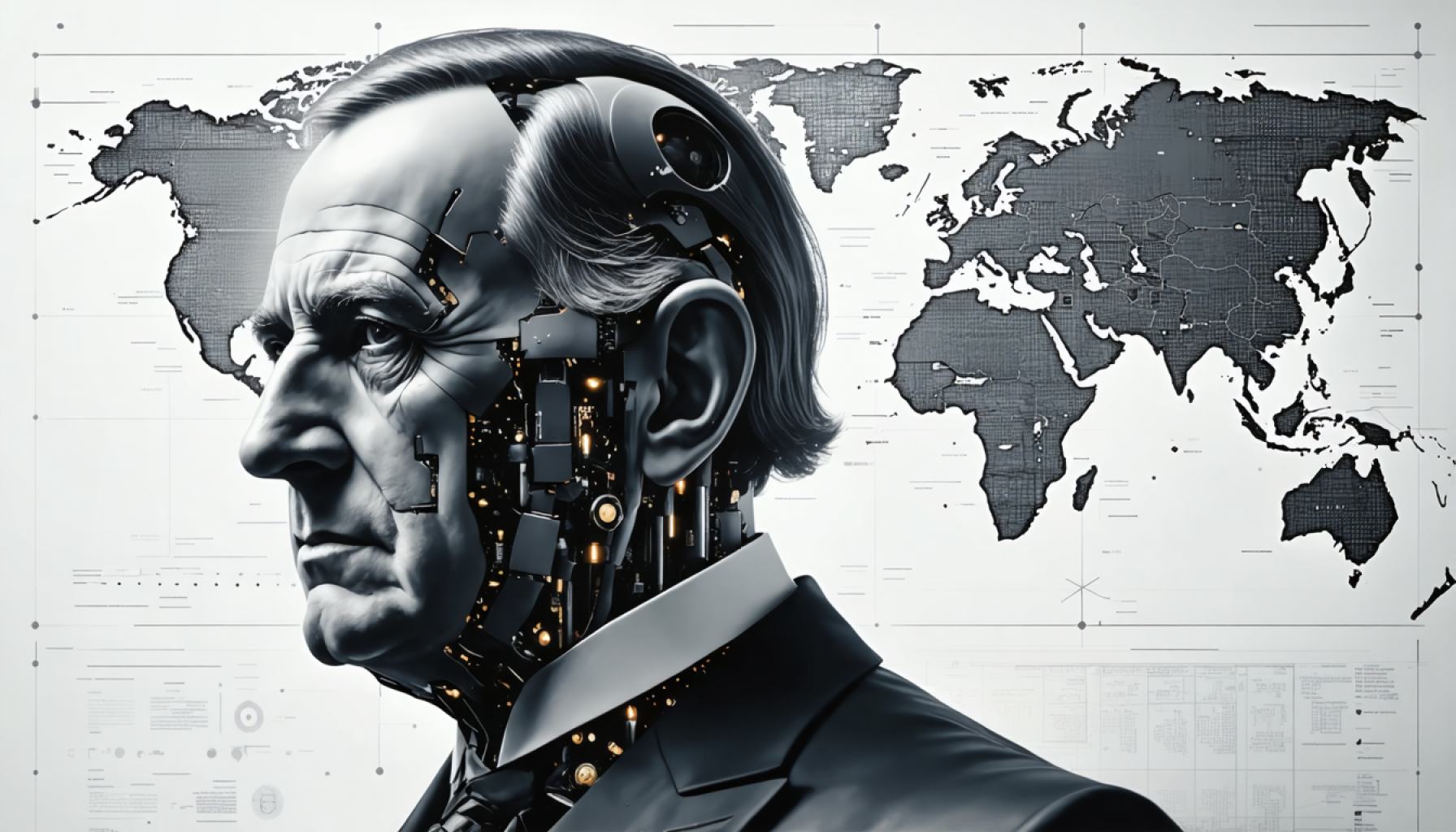
This image was generated using artificial intelligence. It does not depict a real situation and is not official material from any brand or person. If you feel that a photo is inappropriate and we should change it please contact us.
The AI That Predicted President McKinley’s Dilemma! Secrets Unveiled by Smart Tech
- An AI tool has provided new insights into President McKinley’s administration, focusing on late 19th-century decision-making patterns.
- Historians are re-evaluating McKinley’s policies with the help of AI, simulating political and economic conditions of his era.
- Simulations indicate that embracing industrial technologies faster might have enhanced economic growth and global diplomacy during McKinley’s time.
- This AI-based analysis reshapes McKinley’s legacy and serves as a model for future historical investigations.
- The use of technology in history offers promising pathways for deeper exploration and reinterpretation of past leaders and events.
In a groundbreaking intersection of history and technology, a new AI-powered tool reveals surprising insights into President William McKinley’s era. By using deep learning algorithms, researchers have retrospectively analyzed decision-making patterns from the late 19th century, shedding light on challenges faced by McKinley and his administration with unprecedented clarity.
President McKinley, the 25th president of the United States, governed during a time of significant transformation and expansion. Historians have long debated his handling of economic policies, international relations, and domestic issues, but the latest technological advancements are providing a fresh perspective. An AI model, trained on historical data, simulates political and economic conditions of the time, allowing experts to test McKinley’s decisions against alternative strategies.
The revelation? Modern simulations suggest that a more rapid embrace of industrial technologies could have increased economic growth and improved diplomatic relations globally during McKinley’s presidency. This AI-driven analysis provides not only a reevaluation of McKinley’s legacy but also serves as a valuable tool for future historians looking to understand presidents’ decision-making within the complexities of their respective eras.
As technology continues to advance, historians are likely to delve even deeper into the past, using tools that blend history with cutting-edge AI to unlock mysteries and reshape our understanding of influential leaders. This AI-assisted approach offers a fascinating glimpse into how future technologies can redefine the way we study and interpret history, breathing new life into the analysis of presidential legacies.
Unlocking Historical Secrets: How AI Revolutionizes Our Understanding of President McKinley’s Era
How AI is Transforming the Study of Historical Figures like President McKinley
In the digital age, technology’s role in unpacking historical narratives cannot be overstated. The use of AI in researching President William McKinley’s era exemplifies this transformation, offering new insights into the economic, political, and diplomatic strategies of the late 19th century.
What Are the Core Advantages of Using AI in Historical Research?
AI offers unprecedented capabilities in analyzing complex historical data. Here are its primary advantages:
1. Data-Driven Insights: By processing vast amounts of historical data, AI can identify patterns that were previously undetectable, such as nuanced decision-making processes of historical figures like McKinley.
2. Alternative Scenarios: AI allows researchers to simulate different historical outcomes, offering a fresh perspective on decisions made. For instance, an AI model suggested that embracing industrial technologies more rapidly might have expedited economic growth under McKinley’s administration.
3. Unbiased Analysis: AI systems can analyze historical data without the biases that human historians might inadvertently inject into their research.
Learn more about AI in historical research through Smithsonian Magazine.
How Does this AI-Driven Insight Impact Historical Interpretations?
The insights generated by AI not only reevaluate McKinley’s legacy but also have broader implications for historical scholarship:
– Revised Legacy: New findings suggest alternative strategies that McKinley could have employed, potentially altering the historical interpretation of his presidency.
– Educational Resource: These insights provide a powerful tool for educators and historians, offering a dynamic way to engage with history and inspire critical thinking about the past.
– Future Research Directions: This approach paves the way for future studies that blend technology and history, potentially transforming our understanding of other influential leaders.
For more on the intersection of AI and history, visit History Channel.
What Are the Limitations and Challenges of Using AI in History?
While AI presents exciting possibilities for historical analysis, there are limitations and challenges to consider:
– Data Limitations: AI’s effectiveness depends on the quality and quantity of historical data available. Incomplete or biased data can skew results.
– Interpretation Challenges: AI provides data-driven insights, but human interpretation is still necessary to contextualize these findings within the broader historical narrative.
– Ethical Concerns: The use of AI in historical research raises important ethical questions about privacy, data usage, and the potential for technology to be used to rewrite history with biased narratives.
For further exploration of AI’s ethical implications in historical research, see Ethics.org.
The Future of Historical Research: Predictions and Trends
As AI continues to evolve, the field of historical research is likely to experience significant advances:
– Enhanced Predictive Models: Future AI models may offer even more sophisticated simulations, enhancing our ability to predict historical outcomes and understand complex historical contexts.
– Interdisciplinary Approaches: The integration of AI with history signifies an exciting trend towards interdisciplinary research, combining expertise from technology, history, and social sciences.
– Global Historical Reanalysis: The potential to reevaluate global historical events presents opportunities for rewriting and expanding our understanding of world history, leading to a more comprehensive global narrative.
For insights into future historical research trends, visit National Geographic.
Comments (0)